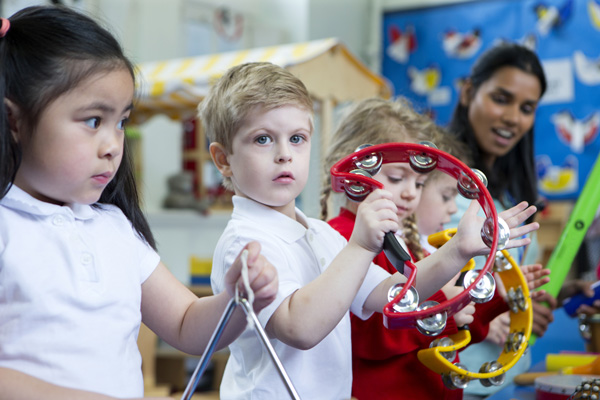Families and children may enjoy attending outdoor music events during the summer. Neighborhood festivals, parks, libraries, farmers markets, fairs, and other venues offer free outdoor music concerts that bring communities together to sing and dance. These summer events are a way for families and caregivers to have fun and share their favorite music with young children.
Music and movement activities help all young children develop new vocabulary words and practice motor skills. Singing is a natural way to learn letter sounds and rhymes as well as to tap into children’s imagination. Family members and caregivers can use music and movement to stimulate children’s creativity. Adding some fun props (e.g., streamers, child-sized instruments) can add interest to music and dancing activities.
For families and caregivers of young dual language learners, music that contains lyrics in the heritage language lays a foundation in the heritage language. As children move to music and listen to a song’s repetitive lyrics, they use their memory to recall the words and movements. Music and movement activities that focus on the heritage language build dual language learners’ communication skills in their heritage language, which is important for success in school subjects such as reading, math, science, and social studies.
Singing and dancing during outdoor concerts is a wonderful way to spend time as a family and create a fun way to support young dual language learners’ development. Bring your children outdoors and enjoy the free summer music concerts in your community.

Bernie Laumann
Dr. Bernadette M. Laumann was the coordinator of the Illinois Early Learning Project from 2013 to 2019. She has been a child care teacher, an early childhood special education teacher, director of an inclusive early childhood program, researcher, and university teacher educator. Her research interests include mentoring and induction activities for beginning teachers and the use of technology in connecting evidence-based practice.
Biography current as of 2019


